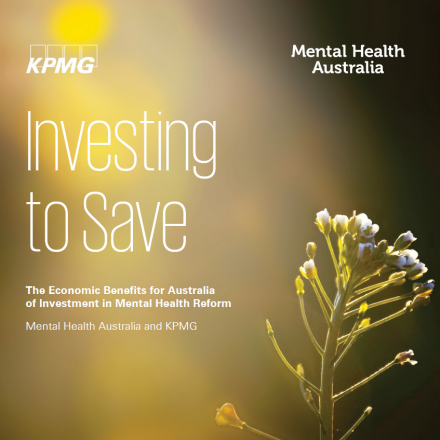CEO Update - Guest Blog by Dr Michelle Funk, World Health Organization
Guest Blog by Dr Michelle Funk, Coordinator, Mental Health Policy and Service Development at the World Health Organization
Mental Health Australia CEO Frank Quinlan is currently on leave and has invited colleagues to provide a guest blog each week. These blogs are the views of each guest blogger and not the opinions of Mental Health Australia.
‘World Health Organization QualityRights initiative to transform services and promote rights’
Around the world, there is increasing awareness of the importance of providing mental health services and supports but also growing discontent about what is actually being provided. With never-ending examples of how services have failed the individuals they are designed to serve, countries are under mounting pressure to scrutinise the types of services provided, how they are delivered, as well as how they are perceived and received by people who use them.
Change is being advocated for and driven forward by different stakeholders including individuals with lived experience, organizations of persons with disabilities, mental health professionals, NGOs such as Mental Health Australia, and in some contexts, entire countries who are pushing forward on mental health reforms. This movement brings with it the diverse perspectives, expertise and experience needed to address the challenges that services are currently facing.
When focusing on the huge amount of work to be done and the difficult nature of this work, it is easy to become overwhelmed and discouraged by the task at hand. However it is important not to lose sight of the many good examples of mental health services that exist; services that promote people’s rights, that listen to people’s stories, respect their choices and needs, and ultimately support them in their personal journey of recovery. Such examples remind us that change is possible.
In recent years, the World Health Organization, through its QualityRights initiative, has been working to transform mental health and social care services and promote the rights of people with psychosocial, intellectual and cognitive disabilities, in line with the UN Convention on the Rights of Persons with Disabilities (CRPD) and other human rights standards. Key standards and tools have been published including the WHO QualityRights assessment toolkit as well as a set of 15 guidance and training materials on mental health, human rights and recovery. The guidance material promotes strategies to end involuntary admission, involuntary treatment, seclusion and restraint, and other coercive practices, as well as measures and practices, in line with the CRPD, that support legal capacity, informed consent, community inclusion and the right to liberty and security of person.
Through the implementation of these standards and tools, and with the engagement and collaboration of diverse stakeholders, WHO is translating the vision of human rights and recovery-oriented mental health services into a reality. We encourage everyone involved in the mental health sector, in Australia and other countries, to access, make use of and promote these new tools in order to build on this momentum for change.
Dr Michelle Funk
Coordinator, Mental Health Policy and Service Development (MHP)
Department of Mental Health and Substance Abuse,
World Health Organization
Twitter @MichelleFunk3
WHO QualityRights: New Training and guidance modules published to support countries to create services and supports that promote recovery, empowerment and human rights for people with psychosocial disabilities http://www.who.int/mental_health/policy/quality_rights/en/index.html
WHO MiNDbank: A database providing national and international resources for developing human-rights oriented policies, laws, strategies, and service standards for mental health, substance abuse, disability, general health and development www.who.int/mental_health/mindbank




